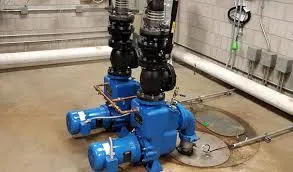English
- Afrikaans
- Albanian
- Amharic
- Arabic
- Armenian
- Azerbaijani
- Basque
- Belarusian
- Bengali
- Bosnian
- Bulgarian
- Catalan
- Cebuano
- Corsican
- Croatian
- Czech
- Danish
- Dutch
- English
- Esperanto
- Estonian
- Finnish
- French
- Frisian
- Galician
- Georgian
- German
- Greek
- Gujarati
- Haitian Creole
- hausa
- hawaiian
- Hebrew
- Hindi
- Miao
- Hungarian
- Icelandic
- igbo
- Indonesian
- irish
- Italian
- Japanese
- Javanese
- Kannada
- kazakh
- Khmer
- Rwandese
- Korean
- Kurdish
- Kyrgyz
- Lao
- Latin
- Latvian
- Lithuanian
- Luxembourgish
- Macedonian
- Malgashi
- Malay
- Malayalam
- Maltese
- Maori
- Marathi
- Mongolian
- Myanmar
- Nepali
- Norwegian
- Norwegian
- Occitan
- Pashto
- Persian
- Polish
- Portuguese
- Punjabi
- Romanian
- Russian
- Samoan
- Scottish Gaelic
- Serbian
- Sesotho
- Shona
- Sindhi
- Sinhala
- Slovak
- Slovenian
- Somali
- Spanish
- Sundanese
- Swahili
- Swedish
- Tagalog
- Tajik
- Tamil
- Tatar
- Telugu
- Thai
- Turkish
- Turkmen
- Ukrainian
- Urdu
- Uighur
- Uzbek
- Vietnamese
- Welsh
- Bantu
- Yiddish
- Yoruba
- Zulu
Telephone: +86 13120555503
Email: frank@cypump.com
Aug . 14, 2024 01:31 Back to list
Understanding the Importance and Maintenance of Septic Pump Tanks for Residential Waste Management
Understanding Septic Pump Tanks Function, Importance, and Maintenance
Septic pump tanks are essential components in many residential and commercial septic systems. These systems are designed to treat wastewater generated from households and businesses in areas where municipal sewage systems are not available. A septic pump tank serves a critical function in ensuring that waste is efficiently processed and safely disposed of, making it crucial for public health and environmental protection.
What is a Septic Pump Tank?
A septic pump tank is a sealed container that holds effluent (the liquid waste that has undergone initial treatment in a septic tank) before it is pumped to the drain field or absorption area for further treatment and distribution into the soil. Unlike traditional septic tanks, where gravity plays a predominant role in moving waste through the system, a pump tank relies on mechanical power to push the waste to its next destination. This is particularly important in areas with high water tables or where the drain field is situated at a higher elevation than the septic tank.
Function and Importance
The primary function of a septic pump tank is to act as a holding chamber for partially treated effluent. When the effluent level in the tank reaches a certain point, a float switch activates the pump, which then discharges the effluent into the drain field for further treatment. This process helps to prevent backups and overflows, ensuring smooth operation of the septic system.
Moreover, septic pump tanks play a vital role in protecting the environment. By effectively managing wastewater, they help reduce the risk of contamination of surface water and groundwater. Properly functioning septic systems can mitigate health hazards related to exposure to untreated sewage, such as waterborne diseases.
Key Components of a Septic Pump Tank
A typical septic pump tank consists of several key components
1. Pump The heart of the system, responsible for moving effluent from the tank to the drain field.
2. Float Switch A device that monitors the effluent level. When it reaches a predetermined height, it signals the pump to activate.
3. Inlet and Outlet Pipes These pipes facilitate the entry of effluent into the tank and the exit of treated liquid waste.
septic pump tanks

4. Vent A vent allows gases produced during the breakdown of waste to escape, preventing pressure buildup within the tank.
5. Alarm System Many modern pump tanks are equipped with an alarm to alert homeowners to potential problems, such as high water levels or pump failures.
Maintenance of Septic Pump Tanks
Regular maintenance of septic pump tanks is essential to ensure their longevity and efficiency. Here are some key maintenance tips
1. Regular Inspections Homeowners should schedule routine inspections by a professional to assess the condition of the pump and other components.
2. Pump Cleaning Over time, solids can accumulate in the pump tank, leading to potential blockages. Regular cleaning can prevent this issue.
3. Monitor Usage Being mindful of water usage can help reduce the load on the septic system, prolonging its lifespan.
4. Avoid Chemical Additives Many chemical additives claim to enhance septic system performance, but they can disrupt the natural bacterial processes essential for waste breakdown.
5. Educate Household Members Making all household members aware of what should and shouldn’t be flushed can help prevent unnecessary strain on the system.
Conclusion
Septic pump tanks are crucial for efficient and safe wastewater management in areas lacking municipal sewer systems. Understanding their function and significance, along with adhering to maintenance best practices, can help homeowners protect their investment, safeguard public health, and preserve the environment. Regular inspections and mindful usage are key to ensuring that septic systems remain effective over time. By valuing these systems, we can contribute to a healthier planet.
-
ISG Series Pipeline Pump - Chi Yuan Pumps | High Efficiency, Durable Design
NewsAug.01,2025
-
Advanced Flue Gas Desulfurization Pump with GPT-4 Turbo | Durable & Efficient
NewsJul.31,2025
-
ISG Series Vertical Pipeline Pump - Chi Yuan Pumps | Advanced Hydraulic Design&Durable Construction
NewsJul.31,2025
-
ISG Series Vertical Pipeline Pump - Chi Yuan Pumps | Energy Efficient & Low Noise
NewsJul.31,2025
-
pipeline pump - Chi Yuan Pumps Co., LTD.|High Efficiency&Low Noise
NewsJul.31,2025
-
ISG Series Vertical Pipeline Pump - Chi Yuan Pumps Co., LTD.|High Efficiency, Energy Saving, Low Noise
NewsJul.30,2025










